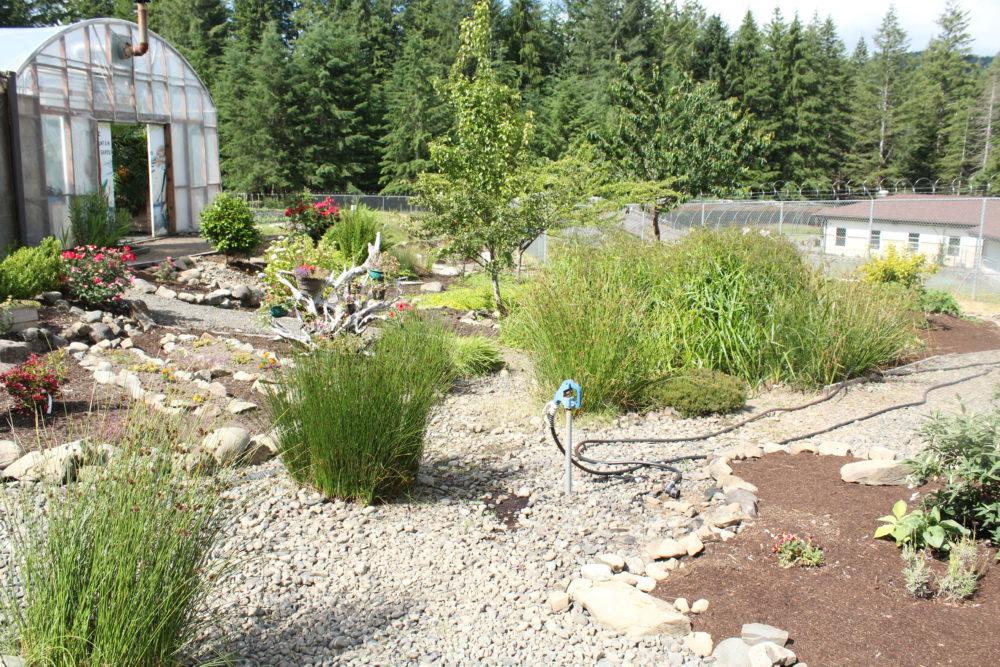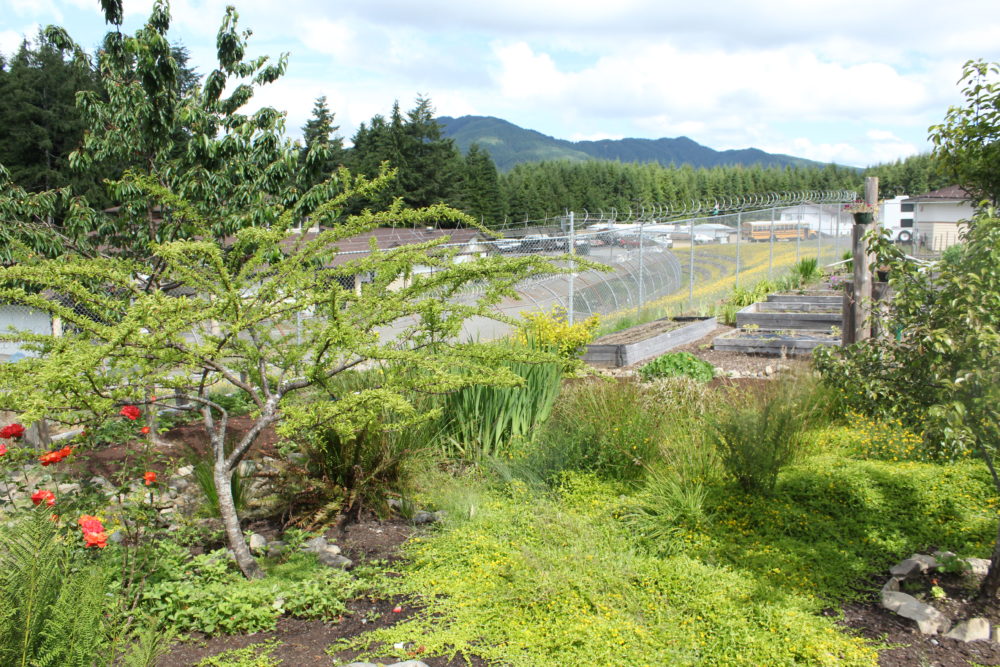As the cold and rainy months appear, the SPP beekeepers are preparing to tuck the bees in for the winter.
After a long season of sunshine and collecting pollen, the bees are starting to return to the hives for the colder months. While bees do not necessarily hibernate in the winter, they do retreat to their hives and stick closely together when the temperature drops below 50 degrees Fahrenheit to stay warm. Winter can be a difficult time for bees and their beekeepers. An article written by NPR, stated that in 2019, about 40% of hives did not survive the winter. The SPP beekeepers at various facilities are hard at work to protect the bees from mites, harsh temperatures, and heavy rain.
Stafford Creek Corrections Center
Beekeepers at Stafford Creek Corrections Center are testing an insulated hive this winter. The bee club introduced the hive in September, carefully transferring bees from a wooden hive frame to a plastic insulated hive.

While transferring the hive, the bee club was surprised to find that one hive was missing a Queen! The bee club conducted a detailed search of every panel and used the situation to teach new beekeepers about the signs of a missing queen and overall bee health.

After combining two hives in the insulated hive, SCCC bee club and bees are prepared for the winter! The bees adjusted well to the new hive and are beginning to return, store honey, and cluster together for the winter.
Cedar Creek Corrections Center
The Cedar Creek beekeepers are also busy preparing the bees for winter. The bees at McNeil Island are still bringing some colorful pollen into the hive as well as propolis from tree resins to fill any cracks in the hive before winter.

The Cedar Creek beekeepers provided additional feed and are providing ample amounts of liquid syrup to help prepare for the cooler months. As the temperature begins to get colder, the beekeepers are prepared to add a sugar brick for emergencies and to apply quilt boxes with more shavings.
Washington Corrections Center for Women
Beekeepers at Washington Corrections Center for Women are preparing for winter by building quilt boxes and making sugar cakes. The WCCW beekeepers have four healthy hives heading into the cooler months and are currently going through twenty cups of sugar a week!

The beekeepers use cedar ships to fill the quilt boxes and are actively monitoring to prevent hornet invasion. In the coming months, the beekeepers are excited to host educational group classes while the bees cluster for the winter.
While the bees are heading in for the winter, SPP beekeepers are headed to the hives to prepare dry, warm, and cozy environments for the coming months.













